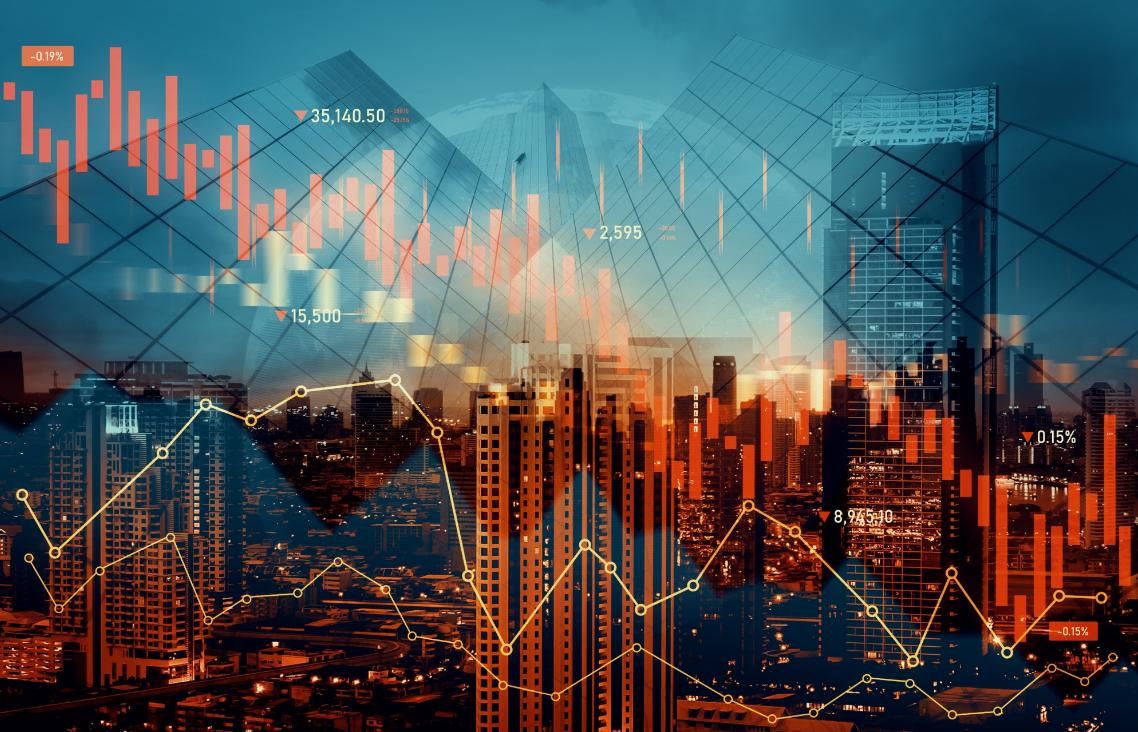
The global economy is currently facing a number of uncertainties that could pose a threat to financial stability. Uncertainty is more complex to measure than traditional measures of economic growth or inflation, yet economists have developed some reliable alternatives. One well-known example is the Economic Policy Uncertainty Index, which measures uncertainty, the economy, and policy in major media reports. There are also indicators that track the difference between actual economic data and economists' previous forecasts.
First, after years of pandemic shocks, inflation surges, geopolitical tensions, climate disasters, and the impact of rapid technological change, we have a deeper understanding of how uncertainty threatens financial stability. This uncertainty could increase volatility in financial markets, delay consumption and investment decisions by individuals and businesses, and tighten the supply of credit.
Second, economic uncertainty and financial market uncertainty do not always go hand in hand. As noted in the Global Financial Stability Report, high economic uncertainty and low financial market volatility are likely to persist for some time. However, if an external shock causes market volatility to rise sharply, it could have a broader negative impact on the economy. During the global financial crisis, for example, rising indicators of economic uncertainty led to increased downside risks to economic growth. If that were to happen again, growth would be expected to slip by 1.2 percentage points, meaning that an expected 0.5 per cent growth could turn into a 0.7 per cent contraction under adverse conditions.
Moreover, the economic impact is likely to be different in different countries. When public and private debt levels rise relative to the size of the economy, high economic uncertainty amplifies the macroeconomic financial stability tradeoff we call easy financial conditions. Generally, loose financial conditions lead to an increase in economic growth expectations, reducing downside risks to the economy in the short term. This is due to factors such as low interest rates, rising asset valuations, tighter credit spreads and lower equity market volatility. However, accommodative financial conditions may also exacerbate debt vulnerabilities, thereby increasing downside risks to future economic growth. Research shows that the disconnect between the economy and markets can lead to spikes in financial market volatility, with the effects likely to be amplified by sharp falls in asset prices following adverse shocks.
Finally, policymakers need to be fully aware of the potential harms of economic uncertainty, which can trigger cross-border spillovers through trade and financial linkages, leading to international financial crises. Policymakers should enhance market certainty by enhancing the credibility of their policy frameworks, for example by adopting strong institution-backed fiscal and monetary policy rules. In addition, enhancing policy transparency and improving policy communication mechanisms can help better guide market expectations and make policy decisions and their impact on the real economy more predictable.
In summary, given that high uncertainty may exacerbate the impact of debt vulnerabilities on the real economy, policymakers should actively adopt appropriate macroprudential policies to limit these risks. This is particularly important when financial conditions are loose and disconnected from the uncertainty in the broader economy. In addition, fiscal policy should focus on sustainability to avoid rising public debt levels leading to higher borrowing costs that could threaten macroeconomic financial stability. Through these measures, policymakers can better safeguard the stability of the financial system and the continued growth of the economy in an environment of increased uncertainty.

The younger sister of North Korean leader Kim Jong Un and the deputy secretary of the Workers' Party, Kim Yong Chon, said that improving relations between North and South Korea is merely the "delusion" of the South Korean side.
The younger sister of North Korean leader Kim Jong Un and t…
The New York Times reported on Tuesday (January 13th) that …
The US State Department has once again urged American citiz…
On January 13th local time, the American chip giant NVIDIA …
On January 9, 2026, a subpoena from the U.S. Department of …
When Trump announced on TruthSocial a 25% tariff on Iran's …